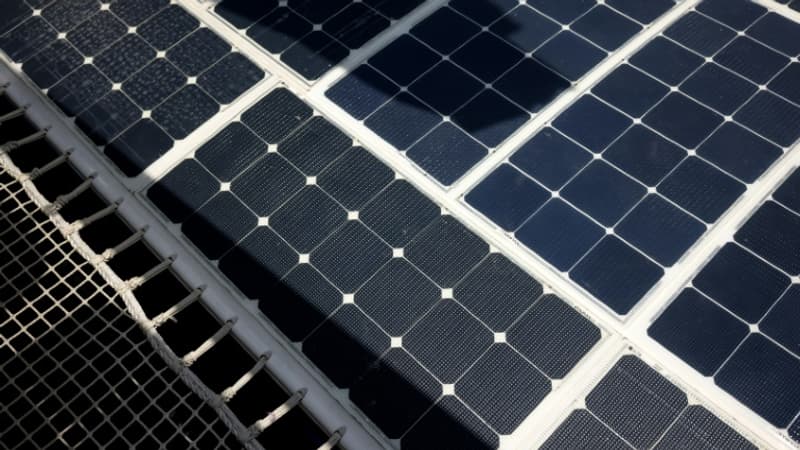More than 3,000 direct jobs and a solar electricity production capacity of 5 GW: the port of Marseille-Fos should house a gigafactory of photovoltaic panels by 2025, the largest so far in Europe, announced this Friday the company Carbon, carrier of the project.
This first factory of the Lyon start-up, created in March 2022, aims to produce and commercialize on a large scale the components used in the manufacture of solar panels (silicon wafers and photovoltaic cells) as well as the latter (i.e. , photovoltaic modules) . The polysilicon needed to manufacture the cells, 80% produced by China, will be imported from Europe.
It is the “French answer” to the question of “how to get out of China’s dependence on solar panels, and tomorrow from India and the United States”, estimated the president of Carbon, Pierre-Emmanuel Martin, recalling that currently 70% of the market was dominated by six Chinese players. However, “solar is a booming market”, especially in Europe, and will constitute “one of the essential building blocks of the future of global energy”, according to him.
The industrial facilities of the future site, whose exact location within the Grand Maritime Port of Marseille (GPMM) has not yet been decided, will occupy 60 hectares and will produce 5 GW of photovoltaic cells and 3.5 GW of mods. All this with an investment budget of 1,500 million euros, of which between 120 and 140 million euros are currently being raised. The Provence-Alpes-Côte d’Azur region will participate for a sum of 70 million euros, indicated its president, Renaud Muselier.
“A tool for the reconquest of national and European sovereignty”
“This manufacturing of photovoltaic panels, which goes from the (silicon) ingot to the module, is an integrated global process that does not exist in Europe today,” underlined Christophe Castaner, president of the port’s board of directors, seeing it as a ” tool for the claim of national and European sovereignty”. This fully electric plant also aims to “find its place in a global decarbonization policy” such as the one carried out by the port of Marseille-Fos, he added.
The latter was particularly preferred over a site in the Hauts-de-France and another in the Grand Est, due to its maritime, river, rail and road connections, but also an attractive employment area that benefits from a significant training offer. “With 30,000 containers per year of flow” generated by the future factory, “for the port, these are particularly important employment and business prospects”, rejoiced Christophe Castaner, recalling that up to 3,500 direct jobs could be created.
The proximity of the Mediterranean also had an influence, according to Pierre-Emmanuel Martin: “North Africa, Greece, Italy, Spain, are extremely dynamic markets where solar energy will be the essential component of the energy of the future.”
Source: BFM TV


